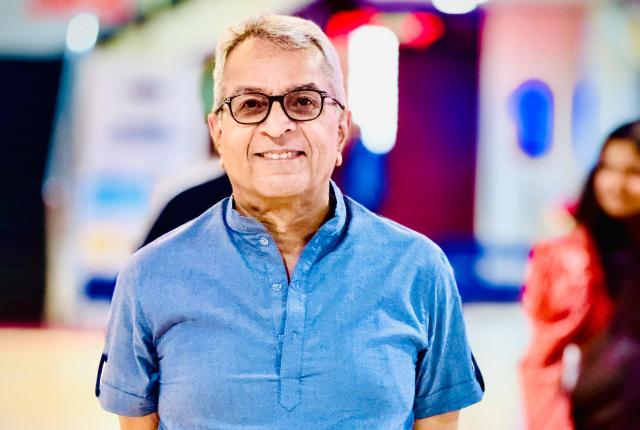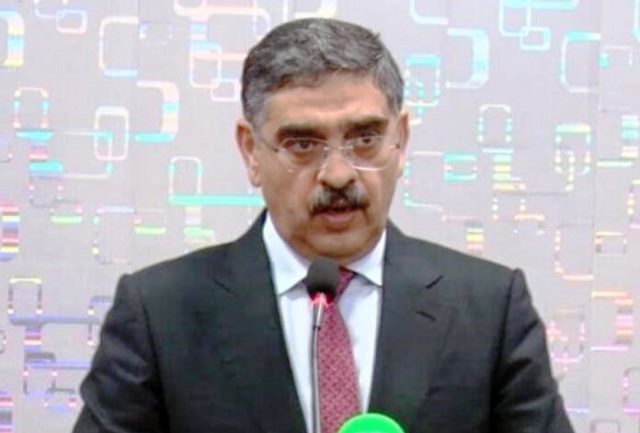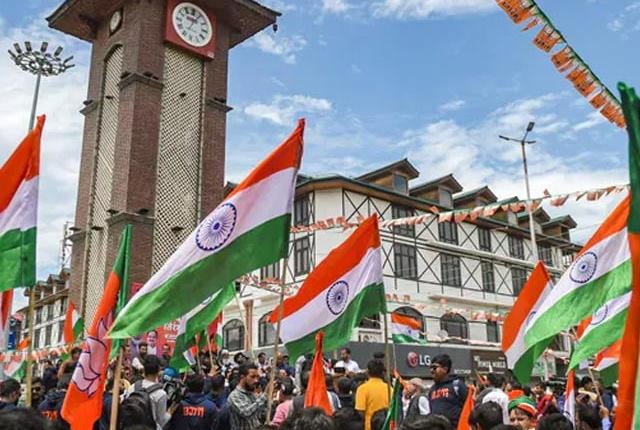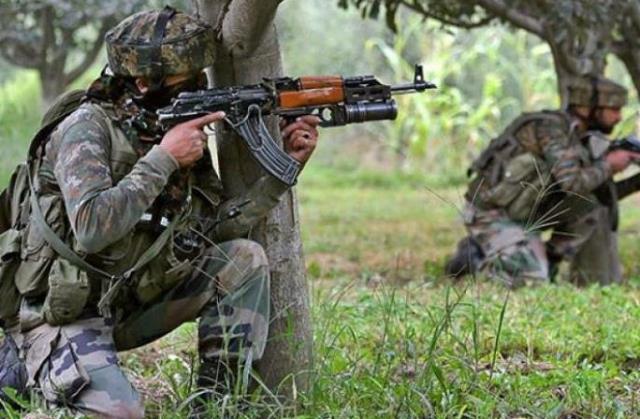While the nation including the
politicians, bureaucrats, police, public and last but not the least Corona
warriors that include doctors, nurses and hospital staff are busy combating Covid-19,
militancy in Kashmir is picking up with the onset of summer months. India need
to remain vigilant.
Traditionally, there is a
spurt in infiltration attempts with the opening of passes but the last month
has seen unprecedented bloody encounters resulting in the death of 22 security
personal including Col Ashutosh Sharma, Maj Anuj Sood and three other brave
hearts. The tracking down and final elimination of a prominent leader of Hizbul
Mujahideen Riaz Naikoo, is a shot in the arm of security forces, but should
not be termed as retaliatory or revenge operation as covered by the mainstream
media.
While the world is desperately
fighting against the global Coronavirus pandemic, Pakistan has been
continuously perpetuating proxy war. It is reliably learnt that Pakistan is
motivating Covid-10 affected terrorists to infiltrate and carry out violent
actions against Indian security forces so that they can go to heaven after
their martyrdom. While Hizbul Mujahideen, Jaish-e-Mohammed and Ansar
Ghazwat-Ul-Hind remain the main active Tanzeems, Lakshar-e-Taiba leadership in
Pakistan has floated a new outfit called The Resistance Front to give an
indigenous look and ward off the pressure from Financial Action Task Force.
A lid was kept on the internal
security situation with a heavy hand by overwhelming deployment of security
forces ever since article 370 was abrogated in early August 2019 but the
dissatisfaction and disenchantment amongst the Kashmiris was brewing over time.
Come November and as winter set in, the infiltration from across the Line of
Control (LoC) came down to a trickle.
The central government thought
that the security forces were on top of the situation; but it was the combination
of the curfew, crowd control measures, uncertainty, prolonged house arrest of
political leaders, blocking of internet and social media and the inclement
weather that did not allow terrorists groups to reorganise and operate freely
during the winter months. This period also witnessed a reduction in number of
stone throwing incidents as the locals were not sure whether the security
forces will continue to show restraint or use adequate requisite force.
At the beginning of this year,
schools and colleges in Kashmir started reopening, internet was restored and
the situation appeared to be inching towards normalcy in the Valley.
Ironically, as the 70-odd Kashmiri political leaders including Abdullahs were
released in March from house arrest, the rest of the nation was confined to
homes due to the threat of Covid-19 and Kashmiris came at par with the rest of
the countrymen. The security forces in Kashmir had to have a balancing act of
fighting on two fronts, militancy and Covid-19. That is not an easy task.
A few questions have arisen as
to why the armed forces are facing so many casualties including those among senior
officers. The answer lies in the ethos of the officers of the Indian Army.
The Indian Army has a
tradition of officers leading from the front. This was evident during the
various wars fought after Independence. Officer casualties have been
proportionately higher than the other ranks.
This is also true for some
other armies of the world. Israel is a shining example. In the Armoured Corps
Memorial and Museum at Yad La-Shiryon, Latrun, there are over two thousand
names of officers and enlisted men who have died between the age of eighteen to
twenty years.
It was heartening to see that
one section of the museum in Israel is dedicated to an Indian army officer; Lt
Gen JFR Jacob, a Jew who was the brain behind the meticulous planning of
operations in East Pakistan, later Bangladesh, in Indo-Pak War of 1971.
Incidentally, in the 1971 War a large number of casualties were officers from
the batch that got commissioned on 13 November 1971, from Indian Military
Academy, barely three weeks prior to the war.
In Kashmir, Handwara has
traditionally been a hot bed since it has thick forests around it like Machipora,
Kainyar, Kandi, Harfudda, Saren, Dalar, Surhalu and Galganjan. Its proximity to
the LoC gives it the correct positioning for reception areas after the
infiltrations. Infiltrating groups come to these forests, have their rest and the
recoup and plan operations using these forests as bases.
Invariably over the years,
there have been bloody encounters with security forces. The army has always had
one to two Special Forces teams operating in these areas alongside the
Rashtriya Rifles and regular infantry battalions operating in a grid pattern in
the hinterland.
Detailed analyses of the
counter insurgency operations in J&K since 1989 reveal that the maximum
casualties to own troops are either at the beginning of the operation when the
exact location of the terrorist is not really known to the troops and they are
fired upon by terrorists hiding in houses or under natural cover; or at the end
of the successful encounter when own troops in a rush of adrenaline, close in
to mop up the operation but some half dead terrorist opens up at close range
knowing fully well that he is going to die. In both cases, the officers are
generally leading and have greater chances of becoming casualties.
The 15 Corps Commander, Lt Gen
BS Raju in a recent interview claimed that the leadership of various Tanzeems
active in the Valley and named above; has been eliminated. Basu says local
recruitment has come down by 45 percent. However there are further dangers.
The US pullout from
Afghanistan will give Pakistan leverage over Afghan terror groups who can be
easily diverted to Kashmir. The foreign constituents of terrorist networks would
substantially be increased. Regarding the leadership, most of these Tanzeems
work in cellular system and there is always a standby leader who takes the
place of the slain leader. Sometimes the same alias like Abu Bakker is also
inherited by the new leader.
Since Pakistan was not able to
get adequate traction and leverage in its relentless diplomatic efforts to
isolate India internationally after the abrogation of Article 370, it is likely
to push a large number of terrorist groups into the Union Territory of Jammu
and Kashmir this summer. Our brave officers and jawans are having to fight on
two fronts, the Covid-19 pandemic and the terrorist escalation from across the border.
The launch pads and training areas as per the Corps Commander, are working at
full capacity and therefore we need to be fully prepared for a hot summer in
the Kashmir Valley. Ready the Indian Security Services will be.



